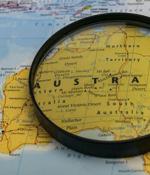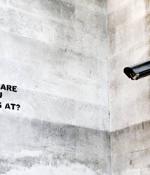Security News

Australia has an e-waste problem, and for all the conversations around climate change, energy use, plastics and other ESG matters, it's surprising that more isn't said about it. Currently, just 12% of the nation's computers are recycled, and Australia is the fourth-highest generator of e-waste per capita.

Through them, any tech company doing business with Australians will be required to actively scan their emails, online photo libraries, cloud storage accounts and dating sites for illegal content. Part of the Commissioner's role has been to create and enforce a framework whereby illegal or damaging material can be removed at the eSafety Commissioner's request.

An infosec incident at a major Australian law firm has sparked fear among the nation's governments, banks and businesses - and a free speech debate. The firm, HWL Ebsworth, has acknowledged that on April 28, "We became aware that a threat actor identified as ALPHV/BlackCat made a post on a dark web forum claiming to have exfiltrated data from HWL Ebsworth."

Australia has joined the growing list of nations that have decided TikTok represents an unacceptable risk when running on government-owned devices, so has decided not to allow it onto those machines. Citing "Advice from intelligence and security agencies," attorney-general Mark Dreyfus today announced the national government will "Prohibit the TikTok app on devices issued by Commonwealth departments and agencies. The direction will come into effect as soon as practicable."

Australia's Defence Department removed all Chinese manufactured surveillance cameras after an audit detailed the number of Hikvision and Dahua devices installed in various government facilities. In an impromptu interview on Friday, deputy prime minister and minister of defence Richard Marles revealed that all the relevant Chinese-manufactured Defence department cameras had been removed.

Australia has been the victim of damaging cyberattacks in the latter half of this year, with high-profile incidents impacting businesses across critical sectors such as telecoms, healthcare, and government. The Australian Cyber Security Centre recently confirmed what the media has already been reporting, releasing data that showed cyber-attacks have risen 13% YoY. What makes Australia such an attractive target? And what does this shift mean for the future of other countries around the world?

Japan is also revising its cyber security strategy according to Nikkei. Japan's Aerospace Exploration Agency announced last week it has started conceptualizing a satellite refueling service with private Japanese orbital debris removal company, Astroscale.

The Australian Federal Police have arrested four suspected members of a financial investment scam syndicate estimated to have stolen $100 million from victims worldwide. AFP says the investment scam group manipulated legitimate electronic trading platforms in combination with "Pig butchering."

Australian health insurance provider Medibank has confirmed that another batch of the customer data stolen in the recent breach has been leaked. Medibank is making an effort to minimize the bad news, somewhat, by saying that much the data leaked is incomplete and hard to understand.

The Australian parliament has approved a bill to amend the country's privacy legislation, significantly increasing the maximum penalties to AU$50 million for companies and data controllers who suffered large-scale data breaches. Previously, the penalty for severe data exposures was AU$2.22 million, considered wholly inadequate to incentivize companies to improve their data security mechanisms.